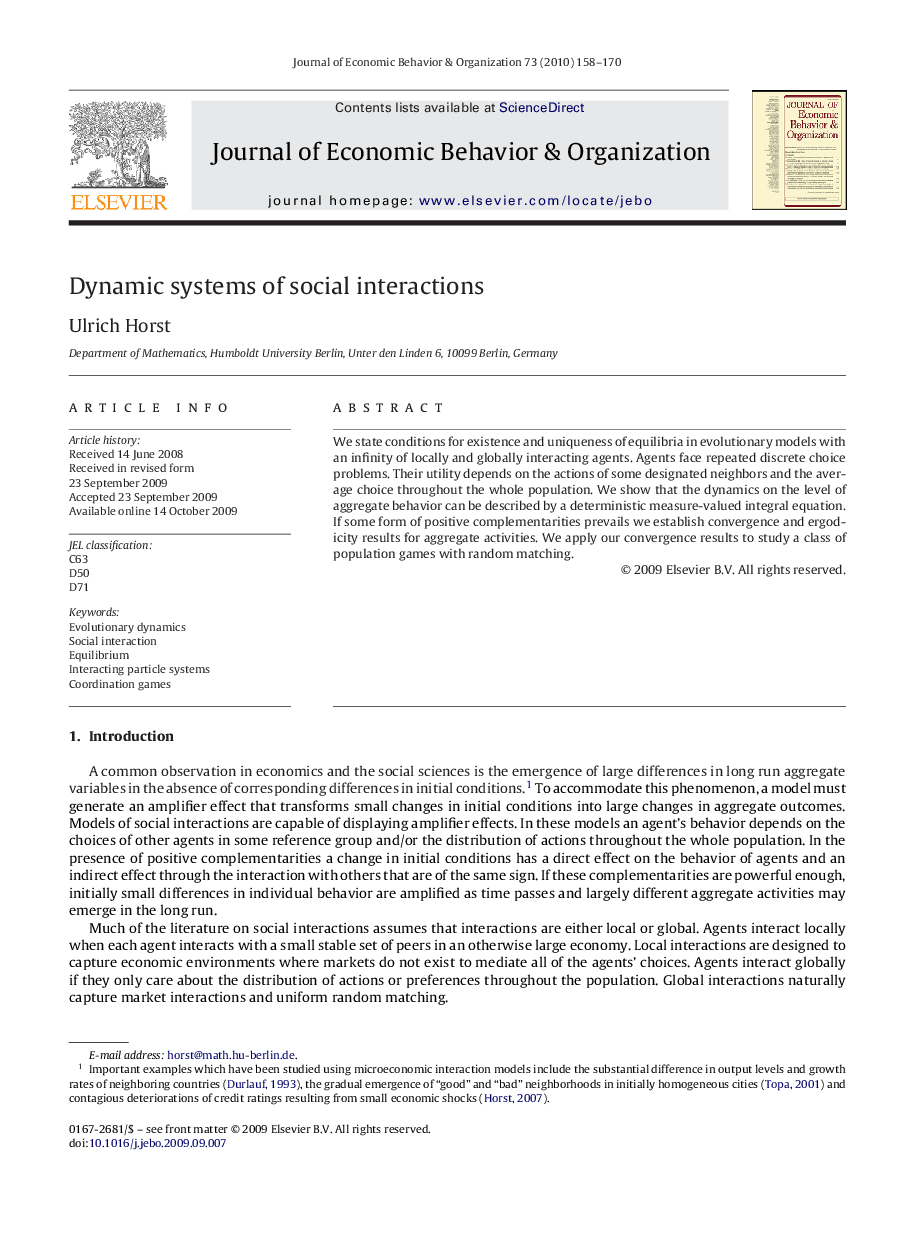| Article ID | Journal | Published Year | Pages | File Type |
|---|---|---|---|---|
| 884216 | Journal of Economic Behavior & Organization | 2010 | 13 Pages |
Abstract
We state conditions for existence and uniqueness of equilibria in evolutionary models with an infinity of locally and globally interacting agents. Agents face repeated discrete choice problems. Their utility depends on the actions of some designated neighbors and the average choice throughout the whole population. We show that the dynamics on the level of aggregate behavior can be described by a deterministic measure-valued integral equation. If some form of positive complementarities prevails we establish convergence and ergodicity results for aggregate activities. We apply our convergence results to study a class of population games with random matching.
Related Topics
Social Sciences and Humanities
Economics, Econometrics and Finance
Economics and Econometrics
Authors
Ulrich Horst,
